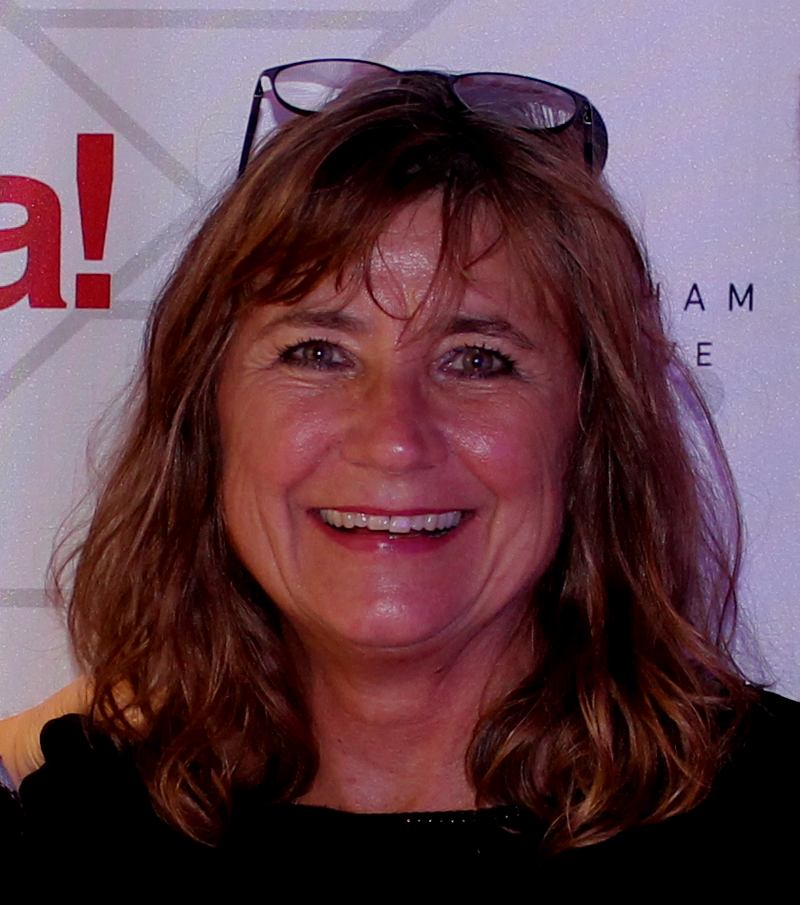
Andy Cunningham is the founder and president of Cunningham Collective and the author of the bestseller “Get to Aha!: Discover Your Positioning DNA and Dominate Your Competition”, which was recently featured in Times Square. Andy has played a key role in the launch of numerous technology categories and products, including the Apple Macintosh she worked on with Steve Jobs.
Key Takeaways
(00:01-08:26) Building a Brand That Sticks
(08:26-13:58) The Birth of Apple’s Creative Tribe
(13:58-22:29) How Emotions and Positioning Drive Success in B2B
(22:29-29:40) The Human Side of Success
(29:40-36:59) Attracting and Retaining Talent
📱 Apple Podcasts | 🎧 Spotify | 🔗 iHeart
The Art of Positioning
Andy Cunningham, a seasoned marketing strategist drawing from the principles of "Positioning: The Battle for Your Mind," emphasizes the critical need for brands to secure "mind real estate" by crafting unique and emotionally resonant narratives in today's saturated market. She cautions against the "build it and they will come" mentality and the creation of "me-too" products, advocating instead for developing compelling brand concepts that forge deep emotional connections with customers, as exemplified by Apple's creation of an identity-based "tribe." Andy underscores the importance of understanding the true audience, even if it differs from initial assumptions, and highlights the growing recognition in the B2B space of the power of emotional connection alongside data and functionality in achieving lasting success.
1. Building a Brand That Sticks
Quoting from the seminal book Positioning: The Battle for Your Mind by Al Ries and Jack Trout, Andy describes positioning as “owning real estate” in the customer’s mind. She stresses that in today’s market, where thousands of products flood every sector, this "mind real estate" is harder to claim, and yet more essential than ever. Andy points out that many companies, especially those driven by engineers, often assume that building a great product will automatically attract customers. This may have worked 30 years ago when there were fewer products on the market, but in today’s hyper-competitive landscape, simply creating a good product isn’t enough.
Many companies fall into the trap of building what Andy calls "me-too" products—those that mimic competitors but don’t stand out in any meaningful way. She highlights that companies today need to offer something unique and compelling, and that goes beyond product features. In fact, modern marketing has shifted toward branding strategies that focus on the emotional connection between companies and customers. Andy says, "You have to think about your brand, not just your product." In her experience, success comes from creating a compelling, ownable brand concept that resonates emotionally with customers.
Andy emphasizes that Apple’s genius wasn’t just in its product design but in creating an emotional connection with customers. Apple became an identity brand, where people see themselves as part of a community—“Apple people.” This connection transcends product features; it taps into the deeper emotional needs of consumers to belong to something bigger. She stresses that while Apple is an extreme example, any company can find ways to forge that emotional connection with their audience.
Positioning is about finding a unique spot in the competitive landscape that only you can fill. That's the foundational concept. I like to quote Jack Trout and Al Ries, who wrote the first book on positioning, Positioning: The Battle for Your Mind. They describe positioning as owning real estate in the mind of the customer. It's about creating a space in their brain defined by your unique and compelling story, whatever that may be. You need to find that white space on the competitive landscape that only you can own, which gets harder each year with the thousands of new companies starting up all the time. And then, you have to articulate that in such a compelling way that it sticks in the mind of the customer or potential customer. (Andy Cunningham)
2. The Birth of Apple’s Creative Tribe
The speakers dive into a key lesson in positioning: understanding your true audience. The conversation reveals how the initial failure of the Macintosh wasn’t because of the product itself but because Apple tried to sell it as a business machine—when its real audience was elsewhere.
Andy shares how, in 1983, Apple conducted focus groups where people loved the Macintosh, but when asked if their companies would buy it, the answer was a resounding "no." The machine lacked key business features and wasn’t considered a serious alternative to IBM's business-dominating PCs. Steve Jobs had envisioned it as a revolutionary office tool, but the corporate world wasn’t ready for something so unconventional. The product flopped, leading to Jobs' frustration and eventual firing from Apple.
Steve originally thought he could get—just for lack of a better word—the "guys in suits" to switch over from their IBM PCs to Macs. But those weren’t the people. It was the long-haired, tattooed, pierced group sitting in the graphic design departments of these big companies who saw the benefit, and that’s what started it all. He built a tribe out of those people, because they were creative. They looked different, they sounded different, they acted different, and they thought differently. And that’s where the "Think Different" campaign came from. (Andy Cunningham)
3. How Emotions and Positioning Drive Success in B2B
Shifting to today’s B2B landscape, Alex and Andy talk about how things have changed—there are now more software options than ever before, which gives companies the freedom to experiment with new, cheaper tools. However, the challenge of standing out in a crowded market still exists. The conversation highlights how many companies fail to address the emotional needs of their customers, focusing instead on data and features.
Alex shares how, at RELAYTO, they try to break through the noise by focusing on how their tools can connect with the identity and aspirations of professionals. For instance, they aim to help designers not only express their creativity but also see the impact of their work. This approach shifts the focus from features and price to how people feel about their work, which creates a deeper connection to the product.
Andy agrees, emphasizing that while procurement departments in large enterprises still prioritize cost and functionality, there’s real value in creating emotional connections with a product. She explains that companies like Apple understood this early on, and though many companies today rely on data, a few are starting to see the benefit of focusing on the human side of marketing.
Apple was probably the first company to understand that you could create an emotional attachment to a product—whether it was a computer or another device. That was a huge breakthrough in marketing. (Andy Cunningham)
4. The Human Side of Success
The conversation takes a turn toward the impact of artificial intelligence (AI) on branding and customer experiences. Both Andy and Alex express optimism about how AI could help companies fine-tune their messaging and branding efforts. Andy predicts that, ironically, the rise of AI will lead to a renewed emphasis on the human side of branding. With fears about AI taking over certain jobs, brands will need to focus more on creating genuine emotional connections with their customers to differentiate themselves from competitors and avoid being seen as purely transactional.
Andy agrees, noting that modern branding is no longer about creating a static image or logo, as it was in the 1970s when advertising reigned supreme. Today, people are influenced by multiple channels, peer reviews, and social validation, making it more challenging to build a lasting connection with customers. Yet, it’s this multi-sensory experience that makes brands stand out and builds the emotional bond that data alone can’t achieve.
I believe we're entering an era, because of AI and the fear surrounding it, where the human side of everything is going to become a bigger deal. I think it's becoming more important because now we have to pay attention to it. We're all afraid that AI might take over the world and that we’ll lose the ability to control it. So, I believe we’re moving into a time where brands are going to focus more on the emotional connection they build with their customers. (Andy Cunningham)
5. Attracting and Retaining Talent
Andy Cunningham kicks off the discussion by praising Salesforce CEO Mark Benioff, describing him as one of the best marketing minds in business. She points out that his book, Behind the Cloud, showcases how he grew Salesforce largely through innovative marketing. Alex adds that Benioff's approach was holistic, viewing marketing as a core part of building a successful company.
The conversation shifts toward the challenges companies face in HR, especially in areas like compensation and benefits communication. Alex mentions that while companies may excel in recruitment, they often struggle with explaining employee benefits, even though benefits are a major expense for every company. He highlights the confusion around healthcare policies, noting that even insurance carriers and brokers sometimes don't fully understand them.
The balance of power has shifted to employees, and they move around a lot more. They get a better offer elsewhere and leave. So, companies are now starting to think about building a better emotional connection with their employees than they had before. This is why the employee experience has become so critical—it feeds that emotional connection to the company. It’s more than just providing free food and massages. (Andy Cunningham)
Check the episode's Transcript (AI-generated) HERE.
Other Episodes

Godard Abel | CEO of G2
S 01 | Ep 6 Where You Go for Software: Reach Your Peak

Dean Stocker | CEO of Alteryx
S 01 | Ep 8 Turning Your Customers Into Your Biggest Champions

Peter Fader | Co-Founder of Theta CLV
S 01 | Ep 10 Turning Your Marketing Into Dollars